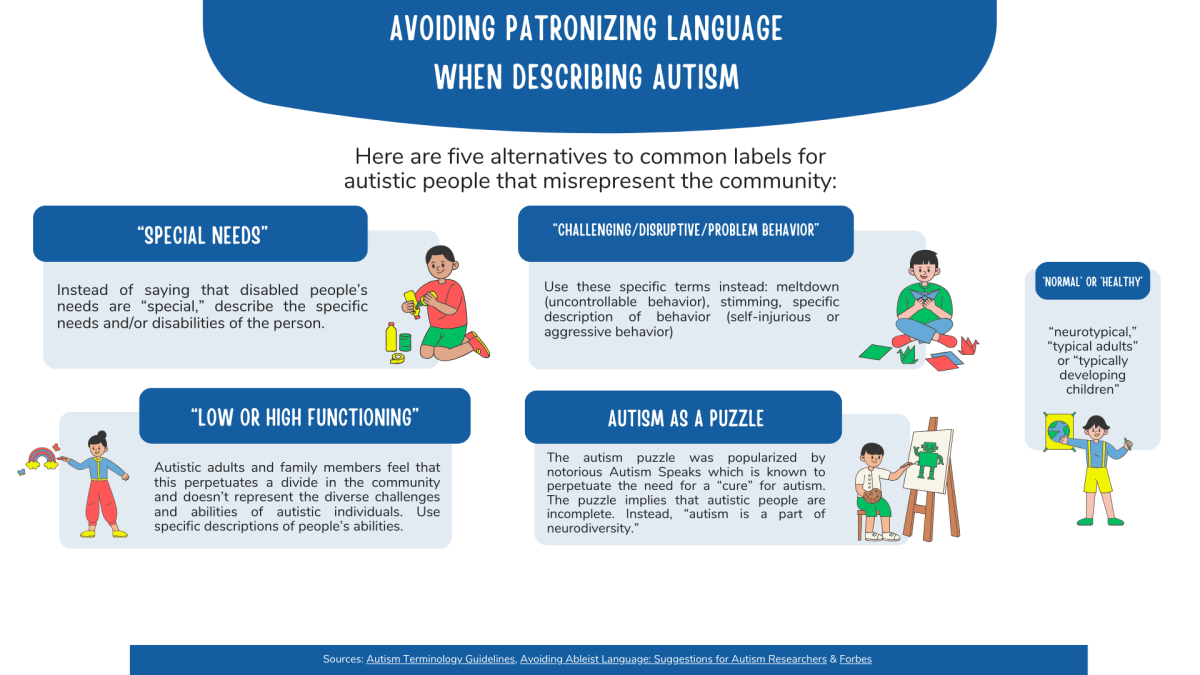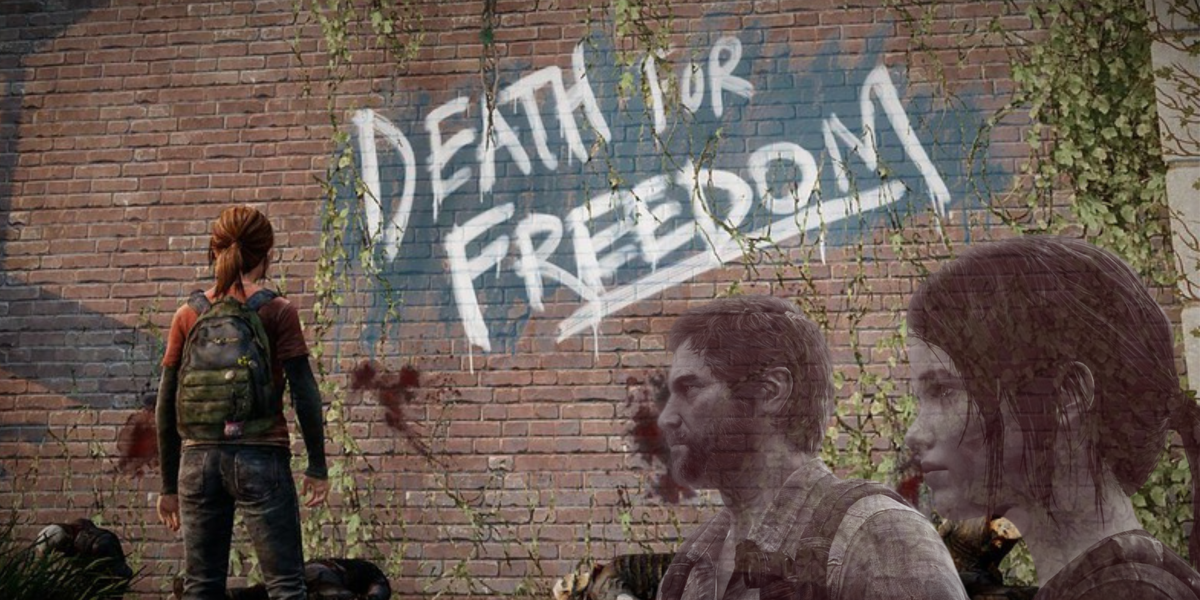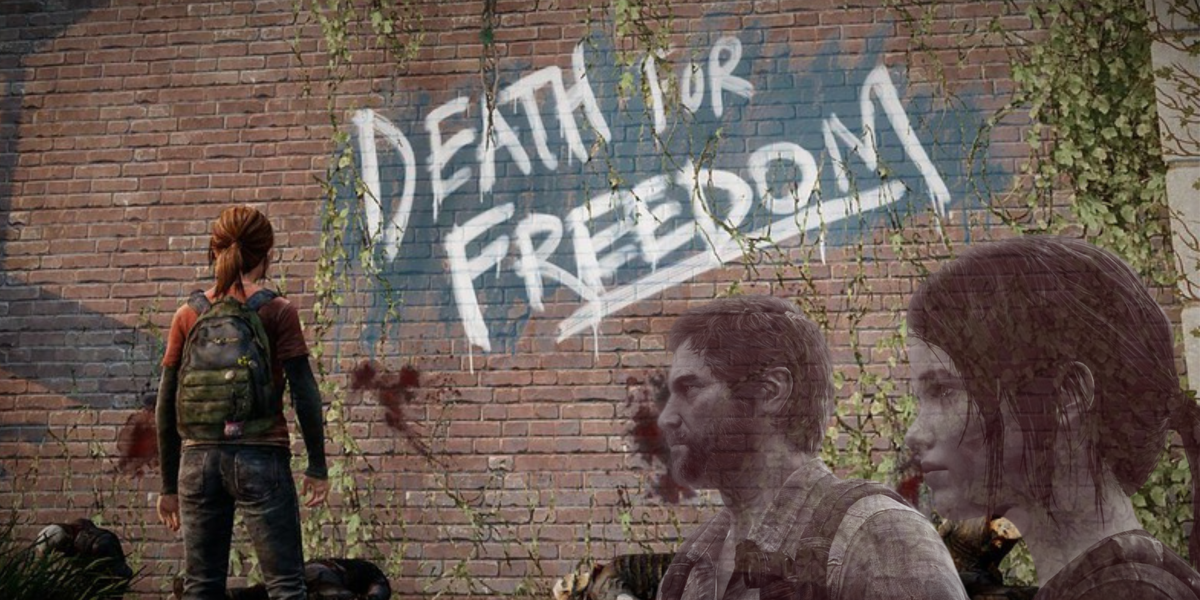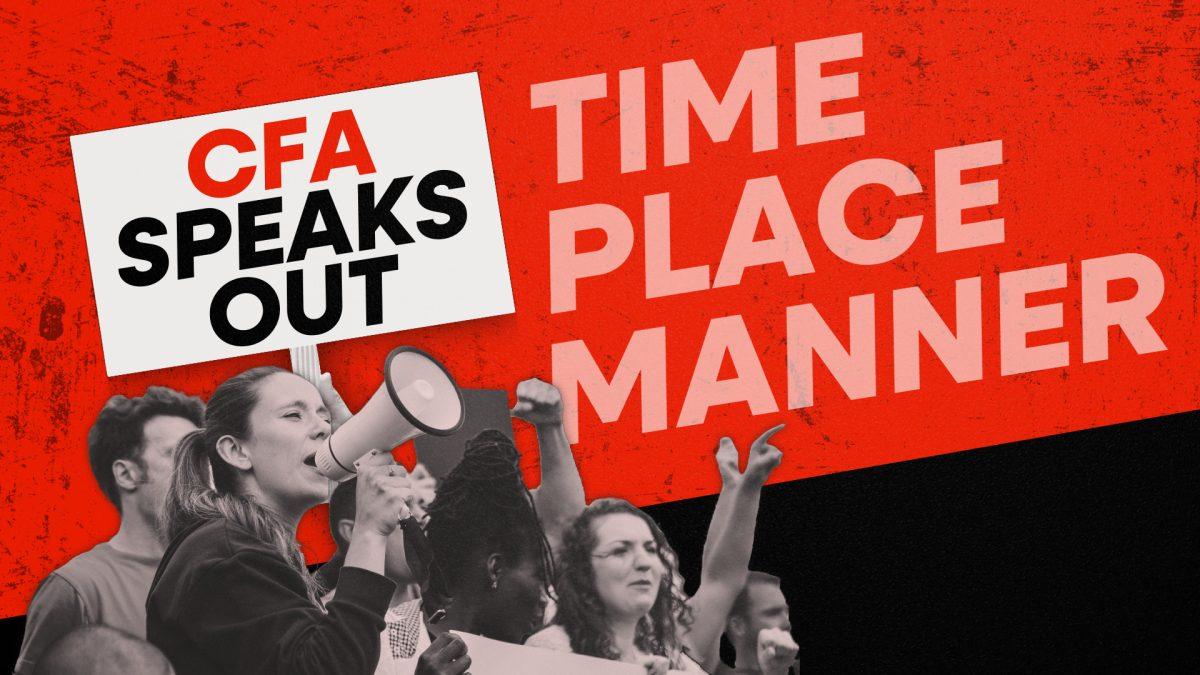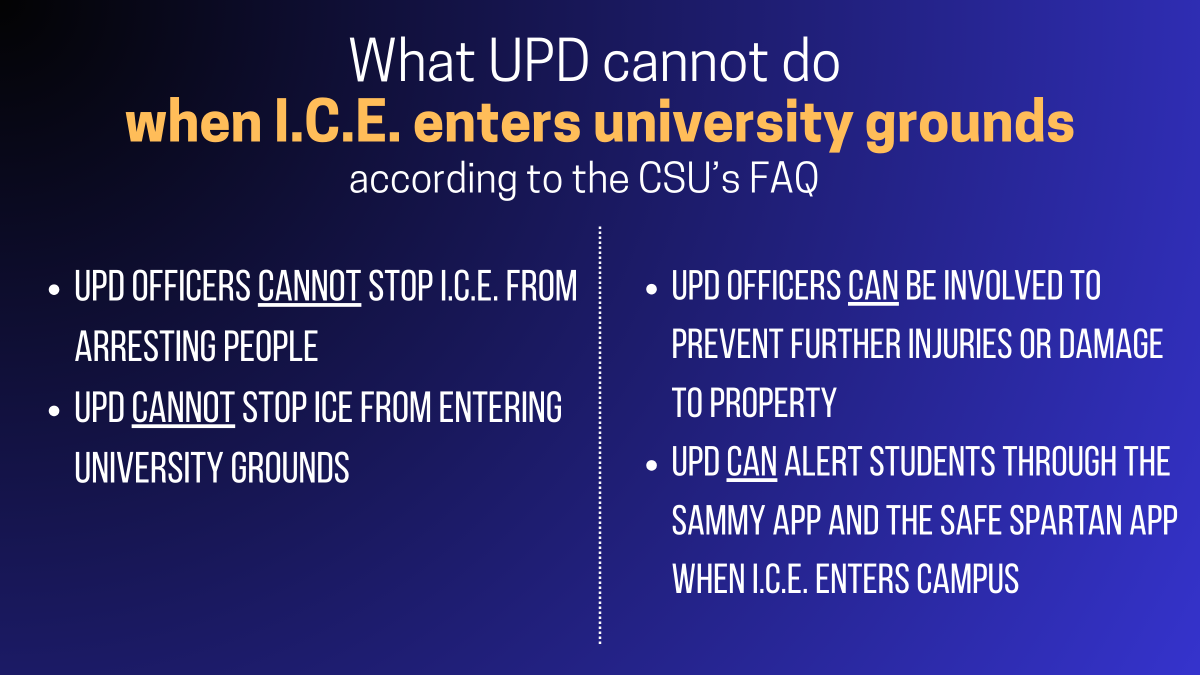The California Faculty Association is organizing across the state against new policies limiting free speech on California State University campuses.
A newly revised Time, Place and Manner policy went into effect on Aug. 15 for students and non-represented employees, according to a web page from The California State University system.
This policy prohibits certain forms of assembly on campuses, including a ban on staged encampments, according to the full text of the policy.
While awaiting bargaining on the policy, the California Faculty Association released multiple statements criticizing the implementation of the interim systemwide Time, Place and Manner policy on its website.
Shamako Noble, a field representative for the California Faculty Association chapter at SJSU, said the policy feels like an oppressive overreach of power in response to protests over the past academic year.
“We definitely feel like this is a disproportionate and oppressive response to student, faculty, staff and the public’s right to speak freely,” Noble said. “(And) to have the opportunity to assemble in (the) community as they mobilize against things that are important to them.”
The union filed an unfair practice charge with the California Public Employment Relations Board against the Board of Trustees of the California State University, according to a Sept. 5 press release from the California Faculty Association.
The charge alleges that the directive which was announced on Aug. 28 by the California State University chancellor was an attempt to push through policies restricting behavior on campuses without properly meeting and conferring with the union, according to the Unfair Practice Charge Form.
Noble said he was on a call with another California Faculty Association member when the unilateral directive dropped, blindsiding the union.
“We expected them to engage based on the agreed meet and confer process, and they did not, so we were absolutely surprised by it,” Noble said.
This move by the administration is a violation of the Higher Education Employer-Employee Relations Act, according to a Sept. 5 press release from the California Faculty Association.
The Higher Education Employer-Employee Relations Act establishes the rules for collective bargaining in the California State University system, according to a web page from the California Public Employment Relations Board.
Sang Hea Kil, a member of the Caucus of Rank-and-File Education Workers within the California Faculty Association, said she supports the opposition of the statewide union to the California State University administration’s actions.
“We need to take a coordinated and hard stance against Time, Place (and) Manner policies and their updates,” Kil said.
Kil plans to submit a resolution at the California Faculty Association’s fall assembly in October to implement protections on free speech for faculty within the union’s collective bargaining agreement.
“In that academic freedom resolution, we’re going to try to embed a lot of these Time, Place and Manner policies, because these (policies) are really an attack on our academic freedom,” Kil said.
She said the California Faculty Association at San José State has refused to provide her guest status to attend the assembly, forcing her to fundraise for her own travel and attendance.
Noble said the SJSU’s chapter of the union is waiting for statewide actions to play out before a mobilization takes place on the ground and to expect a statement on Time, Place and Manner in the coming weeks.
“The ideal situation would be minimizing the imposition of the various problematic dimensions of (Time, Place and Manner),” Noble said. “(And to) minimize those impacts on students and faculty throughout the state and locally.”
Mari Fuentes-Martin, vice president of Student Affairs and the designated university official for the Time, Place and Manner policy at SJSU, said the restrictions are necessary in creating a safe environment on campus.
“Given the climate of not only (the) United States, but around the world, people are escalating their expressions which is really fine if we’re safe,” Fuentes-Martin said. “But when it disrupts the learning process for other students, we have to take some control to ensure that they still have a place to learn.”
Noble said the question of safety should be decided by the campus community
“We understand that to a degree, safety is a motivation or at least a stated motivation for these policies,” he said. “But I also again ask, ‘Who defines safety? Safety for whom?’ ”
Among the future actions planned by the California Faculty Association in response to the chancellor’s directive and Time, Place and Manner policy, the union may strike, according to the same Sept. 5 press release from the union’s website.
“My understanding is that filing a (Public Employment Relations Board) charge about the interim Time, Place, Manner policies will eventually lead us to the pathway to strike,” Kil said.
Kil said she is unsure if the union can handle a strike at the moment, citing the lack of a strike fund at the local or statewide level.
Noble said he hopes the meet and confer process on the Time, Place and Manner policy will result in the upholding of academic freedom at SJSU and across CSU campuses.
“I think we want to see the repression stop, I think we want to see academic freedom thrive,” Noble said. “I think we want to see a campus where surveillance is not common practice and to be expected by people who are just trying to express themselves and exercise both their academic and citizen rights.”
The California Faculty Association is organizing across the state against new policies limiting free speech on California State University campuses.
A newly revised Time, Place and Manner policy went into effect on Aug. 15 for students and non-represented employees, according to a web page from The California State University system.
This policy prohibits certain forms of assembly on campuses, including a ban on staged encampments, according to the full text of the policy.
While awaiting bargaining on the policy, the California Faculty Association released multiple statements criticizing the implementation of the interim systemwide Time, Place and Manner policy on its website.
Shamako Noble, a field representative for the California Faculty Association chapter at SJSU, said the policy feels like an oppressive overreach of power in response to protests over the past academic year.
“We definitely feel like this is a disproportionate and oppressive response to student, faculty, staff and the public’s right to speak freely,” Noble said. “(And) to have the opportunity to assemble in (the) community as they mobilize against things that are important to them.”
The union filed an unfair practice charge with the California Public Employment Relations Board against the Board of Trustees of the California State University, according to a Sept. 5 press release from the California Faculty Association.
The charge alleges that the directive which was announced on Aug. 28 by the California State University chancellor was an attempt to push through policies restricting behavior on campuses without properly meeting and conferring with the union, according to the Unfair Practice Charge Form.
Noble said he was on a call with another California Faculty Association member when the unilateral directive dropped, blindsiding the union.
“We expected them to engage based on the agreed meet and confer process, and they did not, so we were absolutely surprised by it,” Noble said.
This move by the administration is a violation of the Higher Education Employer-Employee Relations Act, according to a Sept. 5 press release from the California Faculty Association.
The Higher Education Employer-Employee Relations Act establishes the rules for collective bargaining in the California State University system, according to a web page from the California Public Employment Relations Board.
Sang Hea Kil, a member of the Caucus of Rank-and-File Education Workers within the California Faculty Association, said she supports the opposition of the statewide union to the California State University administration’s actions.
“We need to take a coordinated and hard stance against Time, Place (and) Manner policies and their updates,” Kil said.
Kil plans to submit a resolution at the California Faculty Association’s fall assembly in October to implement protections on free speech for faculty within the union’s collective bargaining agreement.
“In that academic freedom resolution, we’re going to try to embed a lot of these Time, Place and Manner policies, because these (policies) are really an attack on our academic freedom,” Kil said.
She said the California Faculty Association at San José State has refused to provide her guest status to attend the assembly, forcing her to fundraise for her own travel and attendance.
Noble said the SJSU’s chapter of the union is waiting for statewide actions to play out before a mobilization takes place on the ground and to expect a statement on Time, Place and Manner in the coming weeks.
“The ideal situation would be minimizing the imposition of the various problematic dimensions of (Time, Place and Manner),” Noble said. “(And to) minimize those impacts on students and faculty throughout the state and locally.”
Mari Fuentes-Martin, vice president of Student Affairs and the designated university official for the Time, Place and Manner policy at SJSU, said the restrictions are necessary in creating a safe environment on campus.
“Given the climate of not only (the) United States, but around the world, people are escalating their expressions which is really fine if we’re safe,” Fuentes-Martin said. “But when it disrupts the learning process for other students, we have to take some control to ensure that they still have a place to learn.”
Noble said the question of safety should be decided by the campus community
“We understand that to a degree, safety is a motivation or at least a stated motivation for these policies,” he said. “But I also again ask, ‘Who defines safety? Safety for whom?’ ”
Among the future actions planned by the California Faculty Association in response to the chancellor’s directive and Time, Place and Manner policy, the union may strike, according to the same Sept. 5 press release from the union’s website.
“My understanding is that filing a (Public Employment Relations Board) charge about the interim Time, Place, Manner policies will eventually lead us to the pathway to strike,” Kil said.
Kil said she is unsure if the union can handle a strike at the moment, citing the lack of a strike fund at the local or statewide level.
Noble said he hopes the meet and confer process on the Time, Place and Manner policy will result in the upholding of academic freedom at SJSU and across CSU campuses.
“I think we want to see the repression stop, I think we want to see academic freedom thrive,” Noble said. “I think we want to see a campus where surveillance is not common practice and to be expected by people who are just trying to express themselves and exercise both their academic and citizen rights.”








